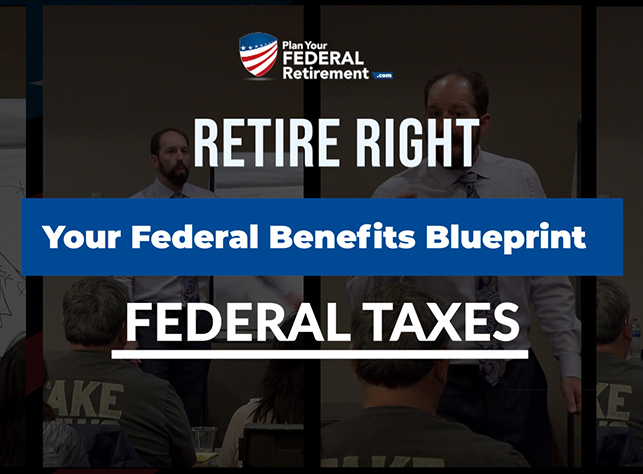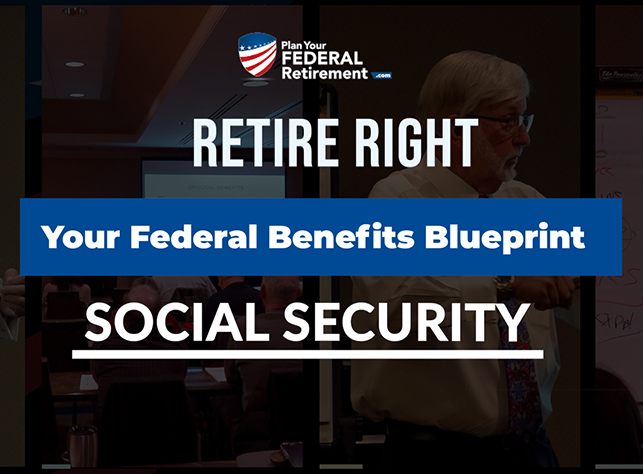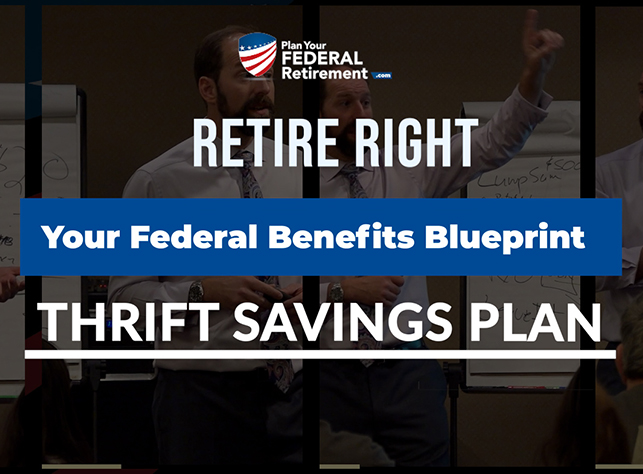Item 3: FEHB – your best benefit as a federal employee
Federal Employee Health benefits are hands down the best benefits for federal employees—so good that Congress even has them!
Do we sound jealous? Well, as civilians on the outside looking in, we are incredibly jealous of your health care benefits as federal employees—they are amazing, so let’s make sure that we do not lose them.
To ensure you can keep your Federal Employees Health Benefits (FEHB) coverage in retirement, it’s crucial to understand the eligibility requirements and take necessary steps before leaving federal service. Let’s break this down into key points:
Eligibility Requirements for FEHB in Retirement
To qualify for FEHB coverage in retirement, you must meet two main criteria:
- Retire with an immediate annuity: You must be eligible for an immediate retirement under the Federal Employees Retirement System (FERS). This includes:
- 30 years of service at your Minimum Retirement Age (MRA)
- 20 years of service at age 60
- 5 years of service at age 62
- 10 years of service at your MRA (MRA+10 Retirement)
- Five-Year Rule: You must have been continuously enrolled (or covered as a family member) in any FEHB plan(s) for the 5 years of service immediately before your retirement date or for the full period of service since your first opportunity to enroll if less than 5 years3.
Verifying FEHB Coverage for Retirement
To verify your FEHB coverage and ensure you meet the requirements:
- Review your Official Personnel Folder (OPF): Check your enrollment history to confirm continuous coverage for the past 5 years.
- Consult with HR: Speak with your agency’s Human Resources office to verify your FEHB enrollment status and eligibility for continuation into retirement.
- Check your Leave and Earnings Statement: Ensure that FEHB premiums are being deducted from your pay.
Ensuring Coverage Before Leaving Federal Service
To guarantee you have FEHB coverage when you retire:
- Enroll in FEHB if not already covered: If you’re not currently enrolled, do so as soon as possible to meet the five-year requirement.
- Maintain continuous enrollment: Avoid any gaps in coverage during the 5 years preceding your planned retirement date1.
- Consider the Tricare exception: If you’re covered by Tricare, this time can count towards the 5-year requirement. However, you must be enrolled in an FEHB plan on your retirement date.
- Plan for spouse coverage: If you want your spouse to continue FEHB coverage after your death, elect a survivor benefit on your pension. This is crucial, as no survivor benefit means no FEHB for your spouse after you pass.
- Double-check your retirement application: Ensure you’ve properly indicated your intention to continue FEHB coverage into retirement.
- Attend pre-retirement counseling: Many agencies offer sessions that cover FEHB continuation and other important retirement benefits.
How does FEHB and Medicare Work?
FEHB is your best benefit as a federal employee, so how does that benefit work with Medicare, which you must enroll in at age 65?
Understanding how these programs work together is crucial for making informed decisions about your healthcare coverage.
Oh and let’s be super clear about how we feel about your FEHB benefits, if you are ever talking with a financial advisor who tells you to give up this benefit, pick up your belongings and leave immediately. They clearly do not understand your federal employee benefits. Do not walk, hustle out the door before you make an election you can never reverse.
FEHB and Medicare Coordination
When you have both FEHB and Medicare, they work together. Essentially, Medicare is your primary payor, and FEHB becomes the secondary.
- Primary vs. Secondary Coverage
- For active federal employees: FEHB is primary, and Medicare is secondary.
- For retirees: Medicare becomes primary, and FEHB is secondary.
- Enrollment Options
- You can keep your FEHB coverage and enroll in Medicare Parts A and B.
- Some FEHB plans offer reimbursement for Part B premiums.
- Coverage Comparison
- FEHB generally covers similar types of expenses as Medicare.
- FEHB may provide additional coverage for services not covered by Medicare, such as routine physicals and emergency care outside the U.S.
Medicare Enrollment Considerations: there are a lot of parts to Medicare but here are the most common Parts people are familiar with:
- Part A (Hospital Insurance)
- Usually premium-free for most people because you already paid into this during your working years.
- Consider enrolling when first eligible.
- Part B (Medical Insurance)
- Requires a monthly premium which is paid for out of pocket, post tax or deducted from your social security payments if you are receiving them.
- Enrollment decision should be based on individual circumstances and cost-benefit analysis. This one comes with a hefty LIFETIME penalty if you choose not to enroll and come back later, needing the coverage. Make sure that you’re really sitting down and going over the options with someone to know what your risks are.
- Part D (Prescription Drug Coverage)
- FEHB provides creditable drug coverage so that you can delay Part D enrollment without penalties, unlike Part B.
- Compare FEHB and Part D costs and benefits to decide which best suits your needs.
In some cases, it may be appropriate to enroll in additional insurance, often referred to as “Medi-Ga,” to cover incidents not otherwise covered under FEHB or Medicare. This is an individual decision based on your current and future health circumstances.
Medical expenses are often a Retirees second largest expense so make sure you take time to decide what your options are and what is most appropriate for you and your family.
Feeling overwhelmed by all your benefits and not sure where to start?
We’ve got you covered.



Micah Shilanski 00:00
We’ve heard me say it before, and I’m gonna say it again. One of the best benefits you have is your federal employee health insurances, and I look on the outside in with my green colored lenses of envy, looking at how good your health insurance is, I can definitely say that, but you gotta understand the rules to keep it into retirement, and we have a really good question that came in from Matt, which I can’t really tell based on his comment if he’s going to be able to keep that health insurance or not, so if you’re interested in the answer to this question, then stay tuned for this FERS Federal Fact Check. Hi, I’m Micah Shilanski with Plan Your Federal Retirement. We have a good question that came in from Matt today talking about his health insurance. Let’s take a peek at his question first, let’s go through a couple scenarios after that. He says, my wife is a federal employee and will retire next year. She’s gonna be 50 years old, and I’m gonna be 58 when she retires, I’m on her health insurance, so we wanna continue having that post retirement. Can I stay on her health insurance without her having to take the survivor benefit? I understand that if she dies, I am no longer covered, but if she lives, we not take any survivor coverage? Can I remain on her health insurance as long as she is alive? Mark, this is an excellent question. I’m sorry, Matt, this is an excellent question that you have, so let’s break it down a couple different ways. Number one, let’s talk about the rules for retirement. Because you say she’s going to retire, but I don’t clearly see if she’s eligible to retire under an immediate retirement because she has two requirements that she has to meet, in order to keep health insurance to retirement, you have two requirements that you have to meet. Number one, she must retire with the eligibility of an immediate pension, that’s our first rule, right? So in that case, what are the rules? The rules under a normal FERS are, you got to be your Minimum Retirement Age and have at least 30 years of federal service. Or you got to be age 60 and have at least 20 years of federal service. Or you could be age 62 and have at least five years of federal service. Now those are the rules. Now, if she has potentially a special provisions, eligible for early retirement, maybe there’s an early out, then we could talk about those rules are, you can be any age and at least 25 years of service, or you could be age 50 and at least 20 years of service, so you made the comment that she’s 50 years old and she’s going to retire, it leads me to believe that she’s under special provisions, right? Or, you know, there’s an early out that you’re able to take advantage of, but she has to go out under this set of rules in order to be under an immediate retirement, and that’s the first requirement. Now, if you have 20 years of federal service and you’re 50 years young, you’re not special provisions, there’s no early out available that’s going to happen, there’s no RIF, etc. Can you retire? Absolutely, are you going to get an immediate pension? No, because if I’m just 50 and I got 20, 30, 40, years of service, I don’t know how 40 years would work at 50, but anyways, you get the concept, it doesn’t matter how much service you have at 50 years young, unless you’re special provisions or there’s an early out opportunity, you’re not eligible for an immediate retirement, this would be a deferred retirement, and in a deferred retirement, you lose your health insurance for a life, this is not a good option, really, be careful before you go down that. So that’s the first requirement she has to retire with the eligibility of an immediate pension, so Matt, question for you, does she meet that requirement? Number two, she must be in FEHB for five years prior to retirement, so great news, she’s gonna retire this next year, rewind the clock, five years has she been an FEHB? Probably most federal employees are in it for a long time, but that’s just this thing to check. Then it gets to your questions, can you stay on her health insurance? Absolutely, if she has FEHB, as long as she selects a family plan or self plus one, then you’re eligible to maintain on that coverage, but you brought up a point, and I have a little concern, I don’t know your situation, you understand that you are not wanting to leave a survivor benefit, and you are correct in your question or your statement that says, if she passes away and she does not leave a survivor benefit, her health insurance dies when she does, right? That means you lose that FEHB for life. That’s a pretty big risk, now, maybe have is taken care of somewhere else, maybe you don’t need the insurance after that, I don’t understand, right? Because there’s a lot of things in your situation I don’t know, but it’s definitely not something that’s kind of ooh, I’d be really careful before you sign on that paperwork and give that benefit up for life, God forbid, if she passes away, that you’re going to lose out on that, so it’s definitely something to think about, but if she retires, you absolutely can stay on her insurance as long as she’s eligible to keep it, it’s a great question. If you have questions like this that you need answers to, then jump on our website planyourfederalretirement.com and you could be featured in our next FERS Federal Fact Check. Till then, Happy Planning!



